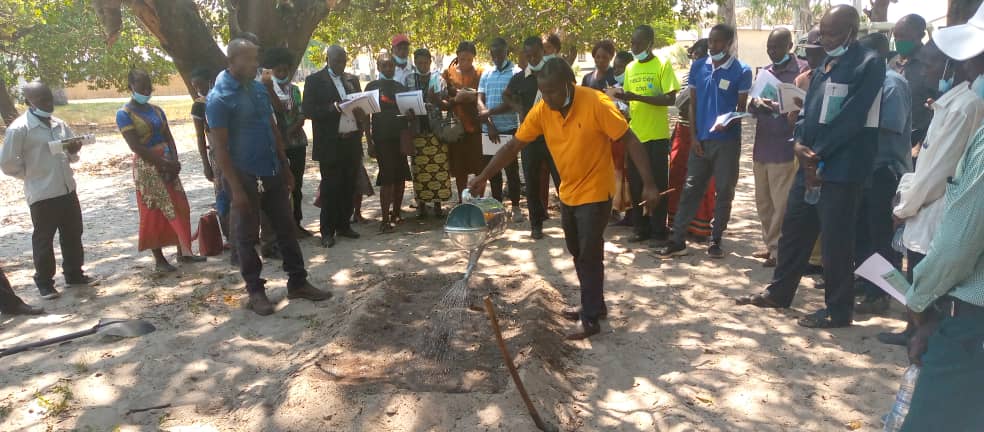
Cashew Infrastructure Development Project (CIDP)
GOAL
To contribute to economic growth, improved livelihoods and food security through improved cashew production & processing.
LOCATION
10 districts of Western Province
DURATION-
2018
-
2021
FARMERS
60,000
VALUE CHAINS
Cashew
PARTNERS
ETC Group (ETG), African Development Bank (AfDB)
FUNDING
USD 10,822,600
Cashew Infrastructure Development Project (CIDP)
Over the span of two years (2019 and 2020), ETG was contracted to oversee several key aspects of the AfDB funded Cashew Infrastructure Development Project, focusing on the following thematic areas: (i) Sensitization of communities, (ii) Rehabilitation of existing cashew plantations, (iii) Re-establishment of canopy coverage in existing cashew plantations through top working, (iv) Replanting of bare areas within existing aged cashew plantations, and (v) Facilitation of the establishment of new plantations. EFF served as ETG's implementation partner and concentrated on community sensitization, emphasizing the project's objectives, implementation strategies, and ultimate benefits. A total of 1,500 community engagement meetings were conducted, engaging almost 50,000 beneficiaries.
The rehabilitation of old cashew plantations involved the spraying of trees to control disease and insect pests. Close to half a million trees were treated, covering an estimated area of 4,849 hectares. Replanting and gap filling within old cashew plantations encompassed over 7,000 hectares and an additional 43,000 hectares, achieved through the production and distribution of cashew seedlings to beneficiaries. Over the two-year period, a total of 5,330,245 seedlings were distributed for this purpose, as well as for establishing new plantations. EFF facilitated this by procuring 50 metric tons of certified poly-clonal cashew nut variety from Tanzania through a bilateral transaction between the Governments of Tanzania and Zambia.
EFF utilized a community-based nursery approach to optimize the success of seedling transplanting and to build the capacity of local farming communities. This involved establishing 510 community-based nurseries, each producing between 5,000 to 10,000 seedlings, and training and recruiting 1,225 nursery operators, thereby creating short-term employment opportunities in project districts. Despite the challenges posed by the COVID-19 pandemic, the project saw high levels of participation from youth and women during its implementation period.
